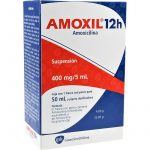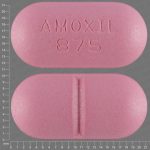
Contents
Health Benefits of Soy Sauce and Daily Consumption
Soy sauce, a 2,200-year-old fermented soy product from China, offers health benefits such as antioxidants and antimicrobial properties.
Soy sauce is widely used in Eastern and South Eastern Asian cuisine, and it has gained popularity in the West. Various types of soy sauce are available, with some being healthier than others.
Although soy sauce can enhance a healthy diet, its high salt content makes it unsuitable for daily consumption. Opt for low-sodium varieties if you enjoy this unique seasoning.
Originally used as a food preservative due to its high salt content, soy sauce is now exclusively used as a condiment. It adds flavor to stir fries, fried rice, Chinese soups, vegetarian dishes, and salad dressings. Additionally, soy sauce is an ingredient in Worcestershire sauce.
Unlike sweet or bitter tastes, soy sauce provides a savory umami sensation. Its exact flavor profile depends on quality and type, but all varieties have a strong saltiness. Soy sauce can vary in color, ranging from pale and yellowish to dark brown or amber.
The Process of Making Soy Sauce
Soy sauce can be made through traditional fermentation or a faster method called acid hydrolysis.
Traditional fermentation involves combining soybeans or soybean flakes with wheat and specific microorganisms. Over time, these microbes produce enzymes that break down proteins, fats, and starches, resulting in a wide range of molecules. Heat is sometimes applied to induce Maillard reactions, creating flavor and color. The fermentation process can last from one month to four years.
In acid hydrolysis, soybeans and wheat are broken down using an acid instead of microorganisms. The resulting products are then heated, filtered, and processed for consumption.
Common Types of Soy Sauce
Soy sauce comes in various types that differ in color and flavor due to variations in the production process. Some common types include:
- High-salt liquid-state fermentation soy sauce: Known as dark soy sauce, it has a robust flavor and is used in slow-cooking processes like soups.
- Low-salt solid-state fermentation soy sauce: This lighter variety has a shorter aging period and is suitable for seasoning light dishes and as a dipping sauce.
- Tamari: Mainly made in Japan, it has a darker color and less aroma than wheat-heavy soy sauces. Some tamari varieties are wheat-free.
- White soy sauce: With more wheat than soybean, it has a mild flavor and a light yellow color due to the absence of browning reactions.
- Indonesian sweet soy sauce: Less common in Western cuisine, it has a dark color and thick texture due to encouraged browning reactions during fermentation.
Nutritional Content of Soy Sauce
The exact nutritional profile of soy sauce depends on its production method, as fermentation and Maillard reactions create a wide range of chemicals. All soy sauces contain small amounts of protein, carbohydrates, fiber, and micronutrients like calcium, magnesium, phosphorus, potassium, and vitamins B6.
The most significant ingredient in soy sauce is sodium. A standard soy sauce made from soybeans and wheat contains 5,490 milligrams of sodium per 100 grams. This exceeds the recommended daily value of 2,300 milligrams. Even low-sodium soy sauces still contain more sodium than the recommended daily limit, so it’s important to use soy sauce sparingly.
Question: Is soy sauce gluten-free?
Individuals with celiac disease or non-celiac gluten intolerance should be cautious when consuming soy sauce. Many soy sauce varieties contain wheat, making them unsuitable for a gluten-free diet. However, gluten-free soy sauces are available, and reading nutrition labels is essential.
Be cautious when choosing gluten-free soy sauces, as some products labeled as such may still contain small amounts of gluten. Testing methods for detecting small amounts of gluten in these products are currently unreliable.
Impact of Soy Sauce on Health
Soy sauce contains various chemicals, and research is ongoing to identify their effects on health. Some discovered compounds have bioactive properties, such as antioxidants that protect cells from damage. Soy sauce may also have antimicrobial properties and stimulate the release of gastric juices, aiding in digestion.
Further research is needed to fully understand the chemical components of soy sauce and their impact on human health.
Sources: Food Chemistry, Free Radical Research, Journal of Agricultural and Food Chemistry, Journal of Bioscience and Bioengineering, Intermountain Primary Children’s Hospital, U.S. Department of Agriculture, U.S. Food and Drug Administration


